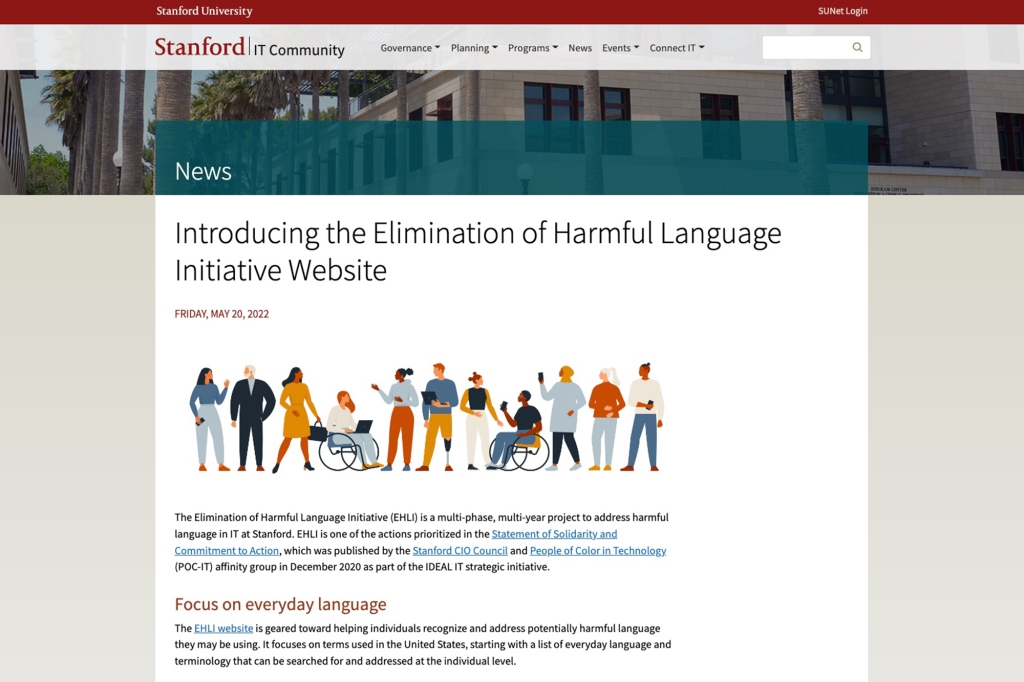Stanford releases guide against ‘harmful language,’ including ‘American’
Stanford University released a guide this week on “harmful” language that it wants to remove from its online properties — noting that the term “American” is a no-go.
The language guide, which was published Monday, aims to “eliminate many forms of harmful language, including racist, violent, and biased … language in Stanford websites and code.”
Launched in May, the project, known as the Elimination of Harmful Language Initiative (EHLI), lists the prohibited terms under 10 categories including racism, homophobia and ableism.
Under a section titled “Imprecise Language,” the guide advises readers to replace the term “American” with “U.S. citizen.”
“[‘American’] often refers to people from the United States only, thereby insinuating that the US is the most important country in the Americas,” the packet reasons, noting that the region actually includes 42 countries between North and South America.

Other listed terms include “immigrant,” which should be replaced by “person who has immigrated” or “non-citizen,” to avoid referring to people by single characteristics, while “walk-in hours” is swapped out for “open hours” in order to include those with disabilities. The common phrase “beating a dead horse” is also cautioned against, based on the idea that it normalizes violence against animals.
In addition, the 13-page list outlines several slurs against black individuals, indigenous groups, wheelchair users, LGBTQ+ individuals and others.
“The purpose of this website is to educate people about the possible impact of the words we use,” the guide’s preface read.

“Language affects different people in different ways. We are not attempting to assign levels of harm to the terms on this site. We also are not attempting to address all informal uses of language.”
Still, some readers criticized the publication on social media. “‘Political correctness is fascism pretending to be manners,’” wrote one Twitter user, quoting the late comedian George Carlin.
“Leland Stanford would be ashamed of the institution he cofounded,” media strategist Gabriella Hoffman wrote, referring to the prestigious university’s founder, who was briefly the Republican governor of California.
It is unclear exactly who was in charge of compiling the list for the EHLI. Stanford University did not immediately respond to The Post’s request for a comment.
Read the full article Here


